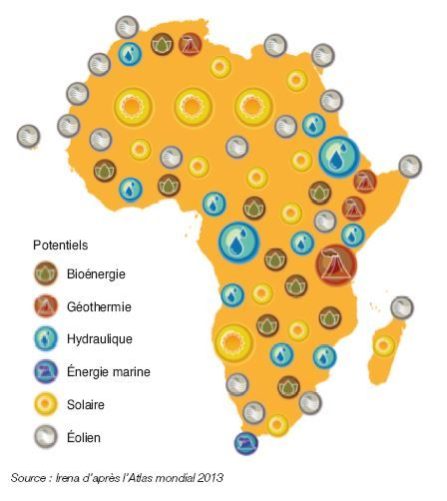Independent Power Producers (IPPs) or Non-Public Power Producers (NPP) are private entities (under an unbundled market), which own and / or operate power generation facilities, then sell it to utility, to a central government purchaser and end users. IPPs can be private facilities, cooperatives, or non-energy industrial companies capable of bringing excess energy into the […]
Having a decentralized production plant based on renewable energies (in particular photovoltaic and wind power) makes it possible to produce electricity for the consumer’s own use (industrial or household). In this case, it can be used directly on site or re-injected into the network in exchange for financial compensation. Hence the interest in knowing the […]
Appeared in the United States in 1983 in the State of Minnesota, net-metering (net metering or net invoicing or compensation) is a policy of self-consumption of photovoltaic electricity that allows a customer producing his own electricity to inject the surplus of its consumption in the public electricity network. Under the net-metering contract, the customer, who […]
One of the advantages of renewable energies, solar photovoltaic in particular, is the decentralization of electricity production. Individuals can now produce their energy by connecting their power plants to the self-consumption distribution network. Self-consumption is the possibility for an actor (private, industrial, commercial) to produce electricity, to consume it (up to its needs) and to […]
A green and sustainable business incubator “Green Incubator”, also called incubator or incubator of green businesses, is a structure whose mission is to welcome, accompany and support the initiators of innovative business creation projects. , in the sector of renewable energies, energy efficiency and Green Tech. Depending on their type (public, private or local government […]
The solar cadastre is a mapping of a territory that highlights the solar energy that reaches the roofs over an average year. Usually financed by a local authority, this mapping is made available to the public using geographic information systems (GIS), in order to learn about the solar potential of buildings, and thus to know […]
The Solar Atlas is a platform that contains databases relating to information (maps or archived records) on the solar field (GHI, DNI, GTI, etc.) from different places around the globe. these Solar Atlases are accessible through an online web interface, we list below the most famous platforms: ✔ Solar Atlas MASEN; ✔ Global Atlas IRENA; […]
Public support tools are necessary for the deployment of renewable energies given the cost still higher than the market price of certain renewable energy sectors, their deployment could not be done on the sole criterion of competitiveness in a functioning market. The incentive mechanisms put in place are specific to each sector and must be […]
The study of renewable energies is essential for the territories, it is an integral part of the development of a transition strategy and contributes to the coherence and robustness of the energy and climate trajectory of the territory. Thus, it makes it possible to have and cross data to make relevant choices adapted to the […]
To accurately estimate the energy produced from a power plant, information on the site’s meteorological resource is needed, in addition to the layout and technical specifications of the plant components. Sophisticated software is often used to model the complex interaction of these different parameters. Although a number of software packages can predict the energy performance […]










